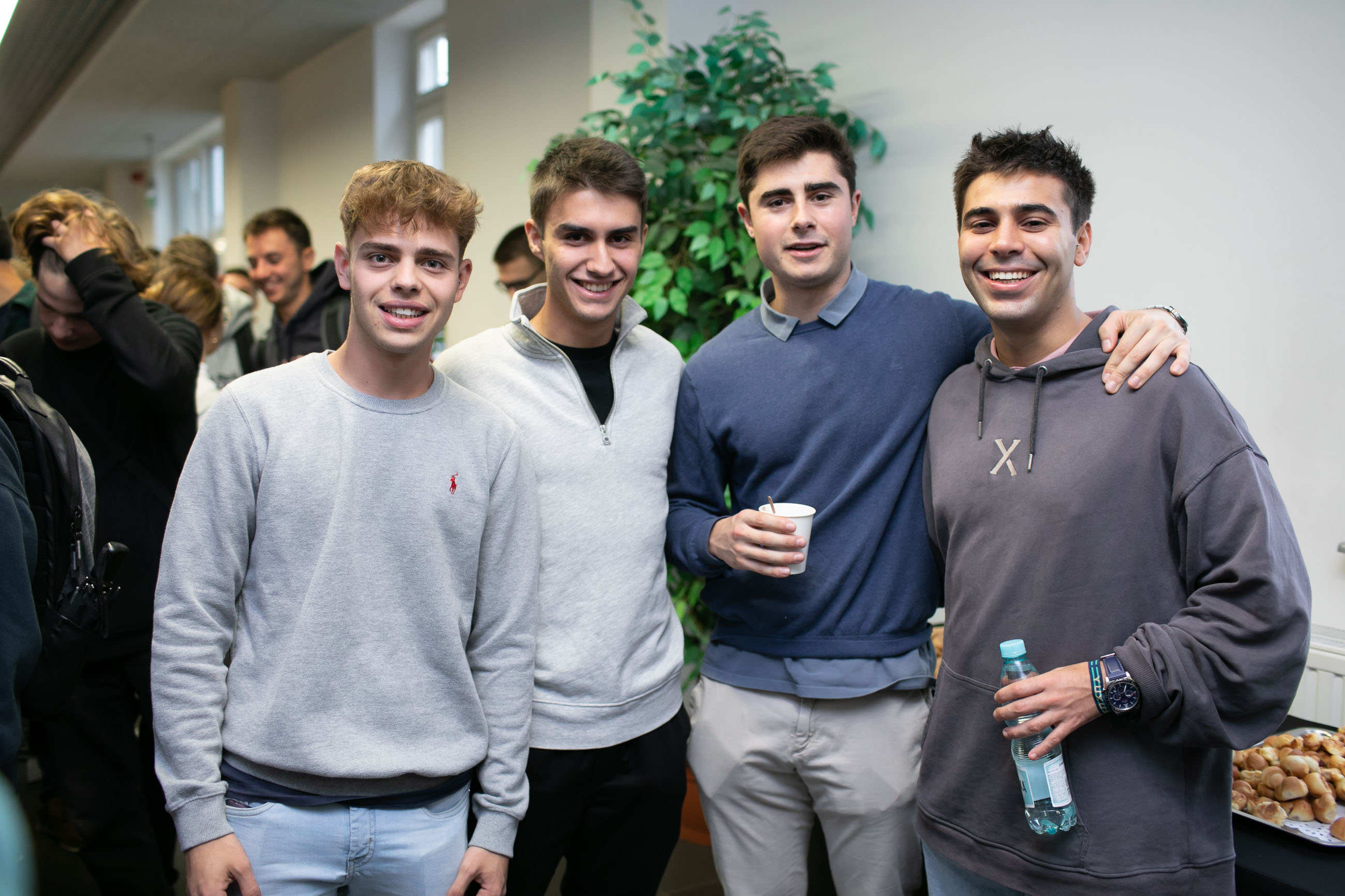Since joining Cracow University of Technology, Lucia Massinda’s perception of the civil engineering field has evolved significantly. The student from Mozambique initially thought it was solely about the design and construction of infrastructure such as bridges, roads, and buildings.
That has since expanded a lot. “I now appreciate that civil engineering is not just about creating physical structures but also about addressing complex challenges related to sustainability, environmental impact, urban development, and community resilience,” she says. “I’ve learned how civil engineers play a critical role in shaping the built environment to improve quality of life, promote economic development, and ensure the safety and well-being of society.”
Massinda credits her growth to the university. “Civil engineering is a crucial field to society’s infrastructure, constantly evolving to meet modern needs around the world, and Cracow University of Technology is among the best in delivering excellent and contemporary engineering education to students from around the world,” she says.
Located in Kraków, Poland, the university’s Faculty of Civil Engineering offers a Master of Science degree that emphasises experiential learning. Almost 60% of its classes are hands-on, with two months of obligatory practical training taking place in and working on actual projects commissioned by a building company. “Through laboratory work, field studies, and project-based learning, I’ve gained real-world experience that directly applies to the challenges I’ll face in my future career,” Massinda says.

Source: Cracow University of Technology
She is referring to the state-of-the-art computer laboratories that are equipped with the latest industry software including Building Information Modelling (BIM). This allows students to familiarise themselves with programmes for design, cost estimation, and scheduling construction projects, mirroring what they will later apply in future workplaces.
Within the faculty, there are 15 research groups, and the university’s student research center, Future Lab. Both provide project and research opportunities as well. Recently, PKanoe, a kayak made by students of thin-walled, ultra-high-performance concrete composite reinforced with textiles, won first prizes in two categories in BetonKanoRace 2023.
Fellow student Ligia Jorge Jamisse enjoys the hands-on nature of her classes just as much. “Working on design projects provided me with valuable insights into both civil engineering and architectural perspectives, offering me a holistic understanding of the built environment,” she says. “This hands-on experience deepened my appreciation for the practical aspects of construction and honed my skills in material analysis.”
Cracow may be an unconventional choice for studying engineering. But what many do not know is that it has always been a city where builders and architects have been educated for a long time. From as early as the 16th century, mathematicians here have written manuals on surveying and delivered the first lectures on engineering.

Source: Cracow University of Technology
Today, the faculty continues this spirit of innovation. For 75 years, it has transformed students into civil engineers who are highly praised in our country and abroad. 90% of students are employed in the field six months after graduating. Their specialised knowledge — a product of the MSc’s wide range of concentrations — gives them an edge against their peers. The proof is in their track record of annual success in the WorldSkills competition. “Our students consistently win national qualifying rounds and achieve top rankings at both the European and global levels,” says Prof. Dorota Jasinska, vice dean of the Faculty of Civil Engineering.
Getting career-ready is a breeze here. The Career Office provides consultations, help with documents needed for future job interviews and information about the labour market. The International Relations Office provides suggestions for international exchange study at partner universities from all over the world or other learning opportunities. The university also brings job opportunities to campus by organising career fairs and faculty festivals where employers meet and present openings to future graduates. Every year students and PhD students of Cracow University of Technology are exposed to different teaching approaches and ways presented by renowned domestic academic teachers and researchers as well as international visiting professors including those recognised among the top 2% of global scientists in the world list released by Stanford University.
It’s an approach that’s turned many students into success stories. Graduate Ryszard Florek is now the founder and owner of Fakro, a leading company in the production of roof windows that are available in over 60 countries worldwide. Graduate Łukasz Ślaga was named Polish Engineer of the Year 2022, winning the Polish Minister of Development and Technology’s competition for outstanding creative achievements in the field of architecture and construction. Their fellow alumni go on to become presidents of large Polish construction companies and design offices recognised internationally.
Student Anna Dovgal aims to replicate their journey. Her goal is to use her education here to help others, especially those in countries with housing crisis or war, like her home country Ukraine. “Cracow has influenced my academic and personal growth in a lot of ways,” she says. “From an academic perspective, I`m always around great architecture and educational opportunities (open lectures/discussions, internships, libraries, just people all around). From a personal perspective, I met a lot of great people who make me better every day and learned to communicate better overall.”
Follow Cracow University of Technology on Facebook, Instagram, LinkedIn, TikTok, and YouTube.










